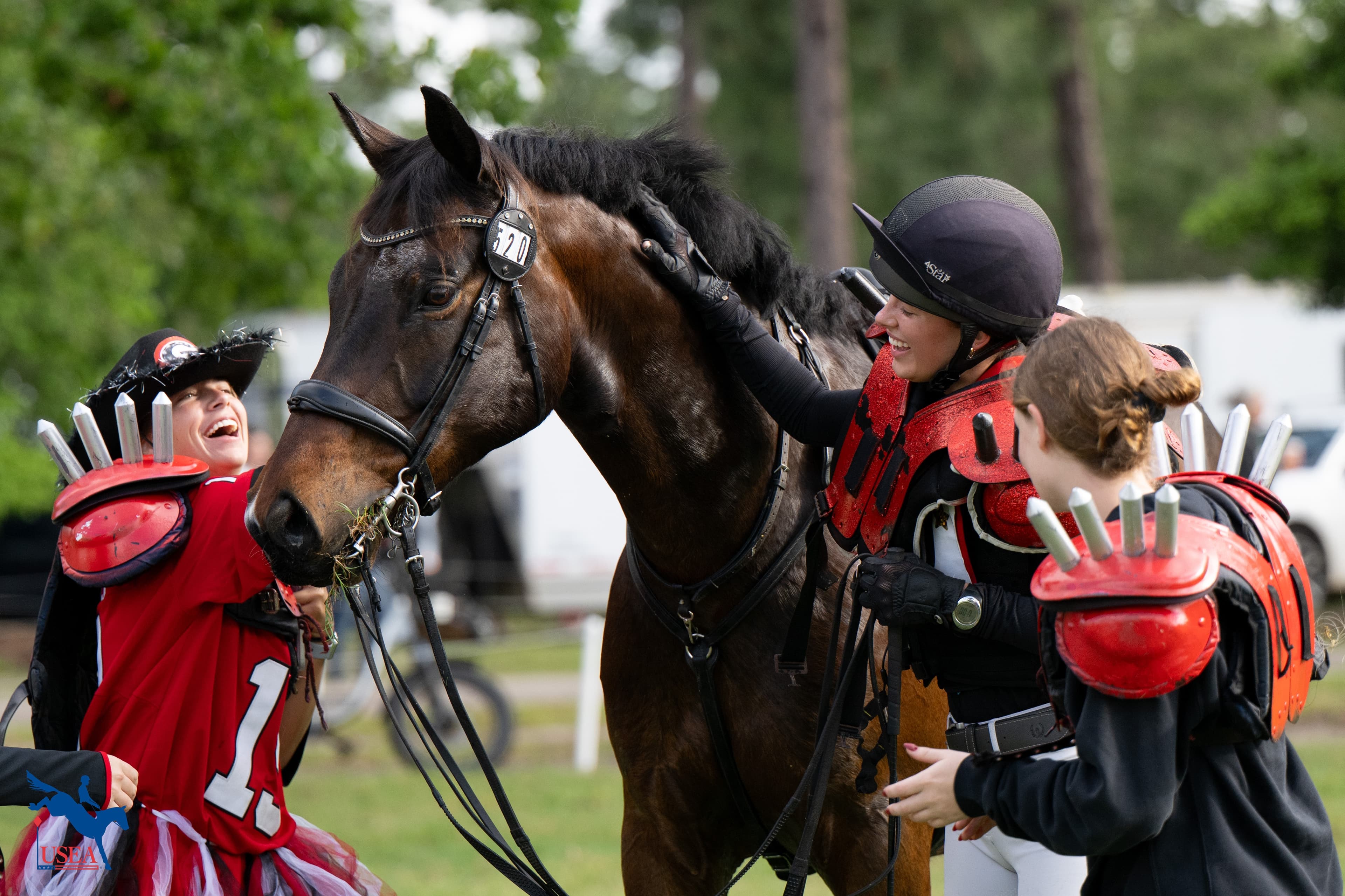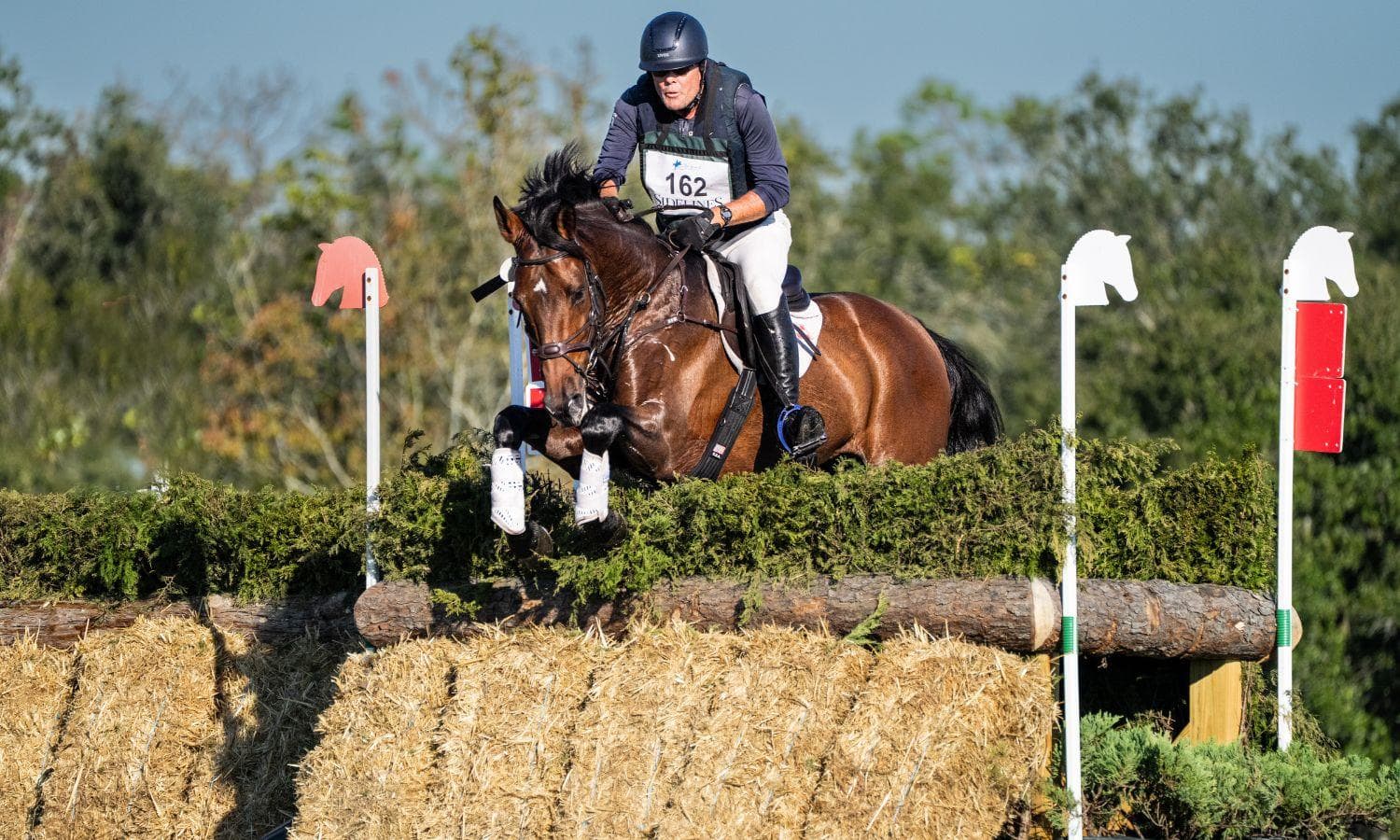How Strong Is Your Advanced Game?
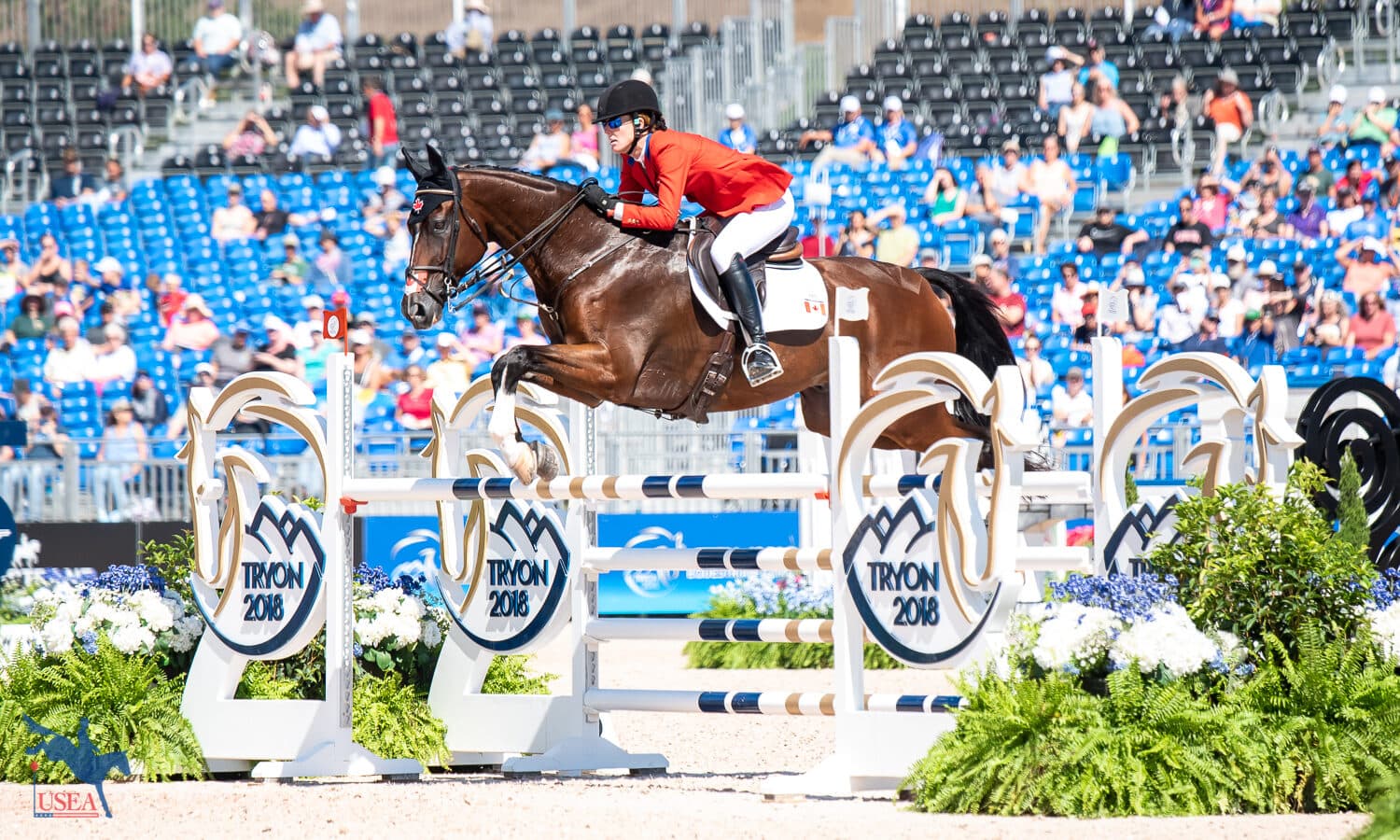
How competitive have your Advanced results been? What is a strong final score? What is a good dressage score? What scores do you need to place high? In the final installment of our level-by-level analysis, EquiRatings offers some stats and graphs to help evaluate your Advanced game.
How are People Scoring at Advanced?
These graphs show Advanced performance across the board, from sub-28 to DNF (Did Not Finish). Take a look to see how the Advanced crowd is typically scoring. What scores do you usually get? We offer some of our takeaways to get you started.
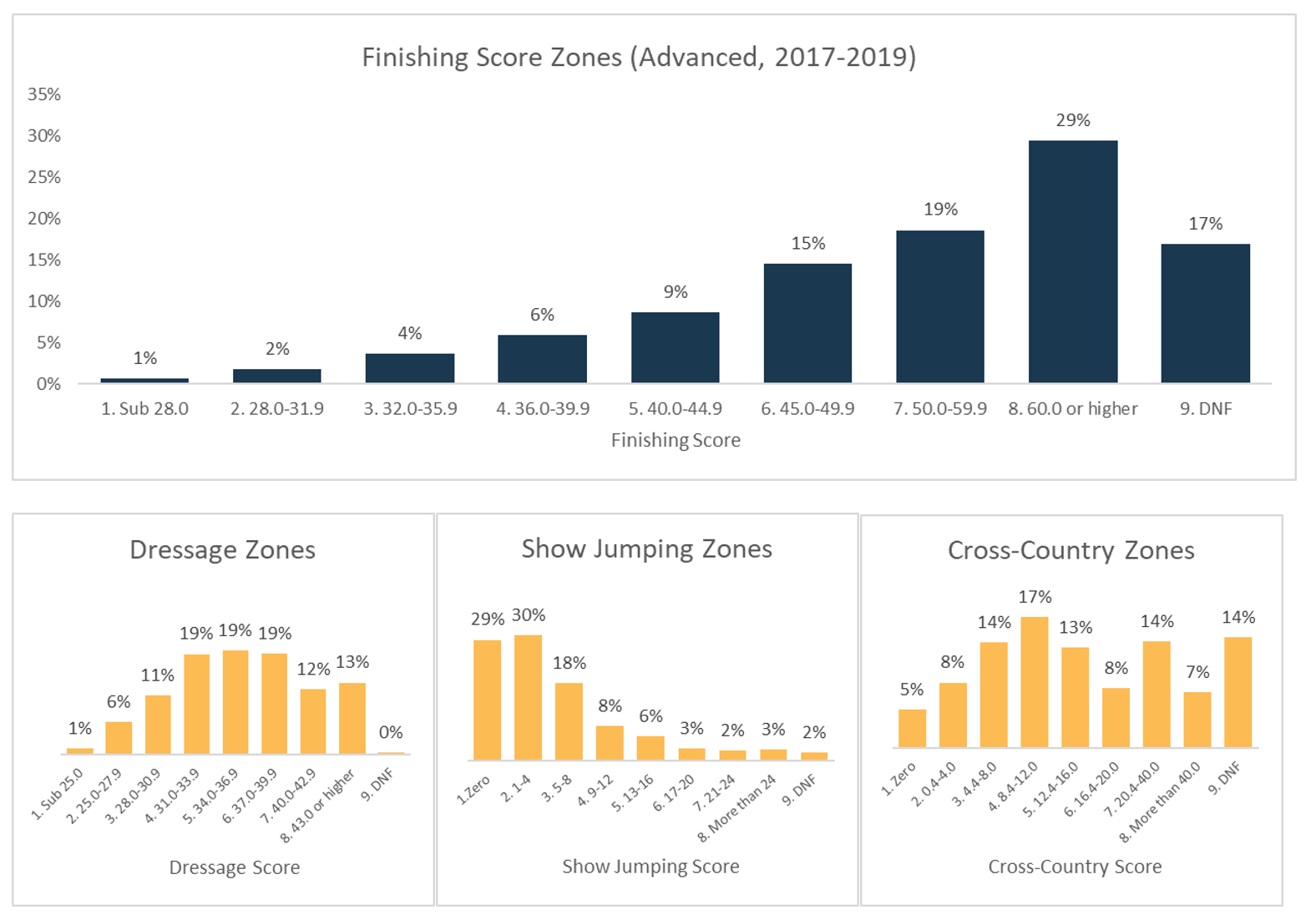
The Big Picture at Advanced
Finishing Score Zones
- Sub-28 Zone: Only 1 out of every 100 Advanced starters (1%) finish sub-28.
- 60+ Zone: On the other end of the spectrum, nearly 1 in 3 Advanced starters (29%) finish with 60 penalties or more.
Per-Phase Zones
- Only 1 in 100 Advanced starters (1%) get a dressage score below 25.
- Advanced is the only national level where the same number of show jumping starters add 1 to 4 faults (30%) as add no faults (29%).
- Only 1 out of every 20 Advanced cross-country starters (5%) finish the phase clear and inside the time. This is the lowest clear-inside-the-time percentage of all the U.S. national levels.
The Target Score for a Win at Advanced
Eventing is about putting all three phases together to finish strong, but what is a strong Advanced finish? How are the top finishers performing? The graphs and tables below show you what it takes to win.
Top Finishing Scores
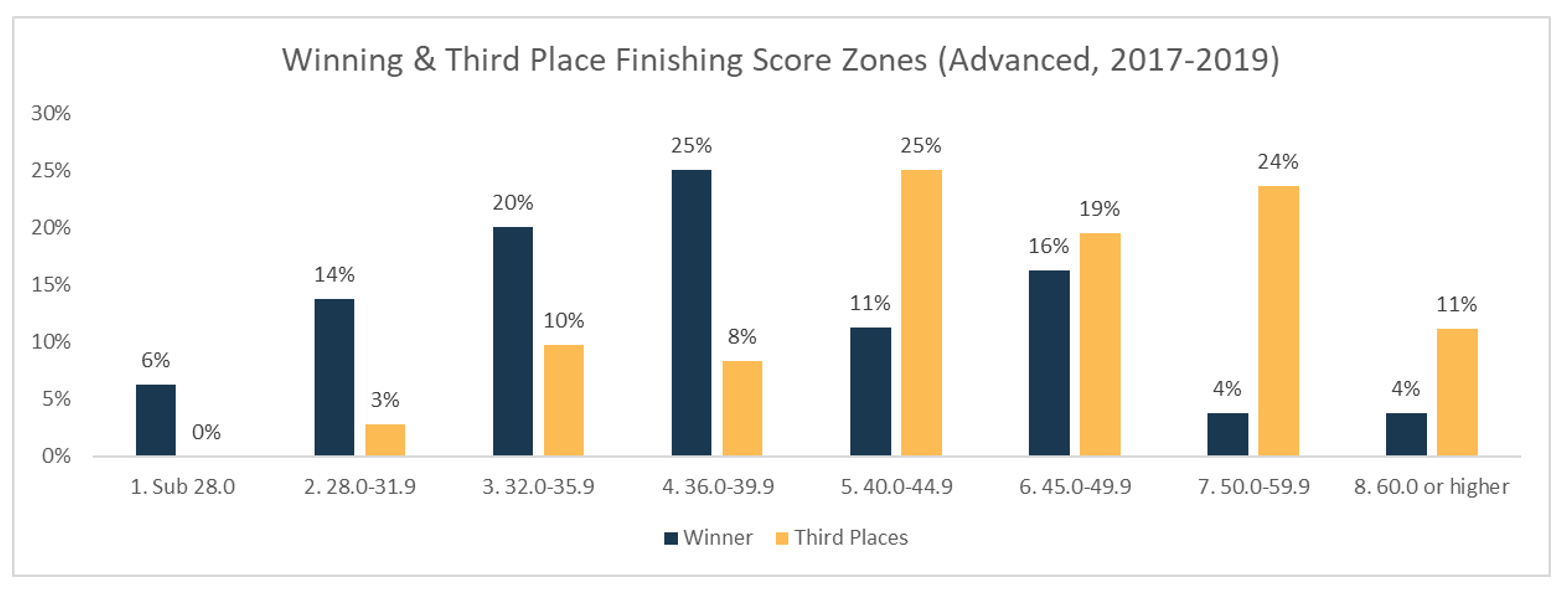
- Almost half of Advanced winners (45%) finish between 32 and 40.
- Most Advanced third-place finishers (79%) finish on a score of 40 or more.
Dressage - What Does a Strong Start Look Like at Advanced?
|
Final Position |
Average Dressage Score |
Started as Dressage Leader |
Started 10 Marks or Less from Dressage Leader |
Started More Than 10 Marks from Dressage Leader |
|
Winner |
30.9 |
40.0% |
55.0% |
5.0% |
|
Third Place |
34.1 |
6.9% |
70.8% |
22.2% |
Using 2017 – 2019 Advanced data.
- Advanced winners average a dressage score of 30.9.
- 1 out of every 20 Advanced winners (5%) has come back to win after starting more than 10 marks behind the dressage leader. This is the highest percentage to come from this position of any U.S. national level.
- The majority of Advanced third-place finishers (nearly 7 in 10, 70.8%) are not the dressage leader but are within 10 marks after the first phase.
Show Jumping - Can You Afford to Knock a Pole at Advanced?
|
Final Position |
0 Show Jumping Penalties |
1 to 4 Show Jumping Penalties |
5 or More Show Jumping Penalties |
|
Winner |
57.5% |
28.8% |
13.8% |
|
Third Place |
38.9% |
36.1% |
25.0% |
Using 2017 – 2019 Advanced data. This table includes show jumping time penalties and jumping penalties.
- A clean show jumping round is important for a win at Advanced but having a rail won’t put you out of the running. Over 2 in 5 winners (42.6%) add show jumping penalties.
- Less than 2 in 5 Advanced third-place finishers (38.9%) keep all the rails up and finish under time.
Cross-Country - Do You Need to be Clear Inside the Time at Advanced?
|
Final Position |
Clear Inside the Time |
Average Cross-Country Time Penalties |
|
Winner |
18% |
6.2 |
|
Third Place |
13% |
10.0 |
Using 2017 – 2019 Advanced data.
- A clean jumping cross-country round is critical to success, but a few time penalties won’t take you out of the running at Advanced. Less than 1 in 5 Advanced winners (18%) finish clear and within the optimum time.
- Advanced is the only U.S. national level where third-place finishers have a double-figure average time penalty value (10.0).
What are the 2019 Record Performances?
Lastly, we have pulled the 2019 record dressage scores and record finishing scores from the Advanced level. In 2019, there were no sub-28 finishing scores, illustrating just how tough it is to score that low. These numbers might be worthy reach goals for you.
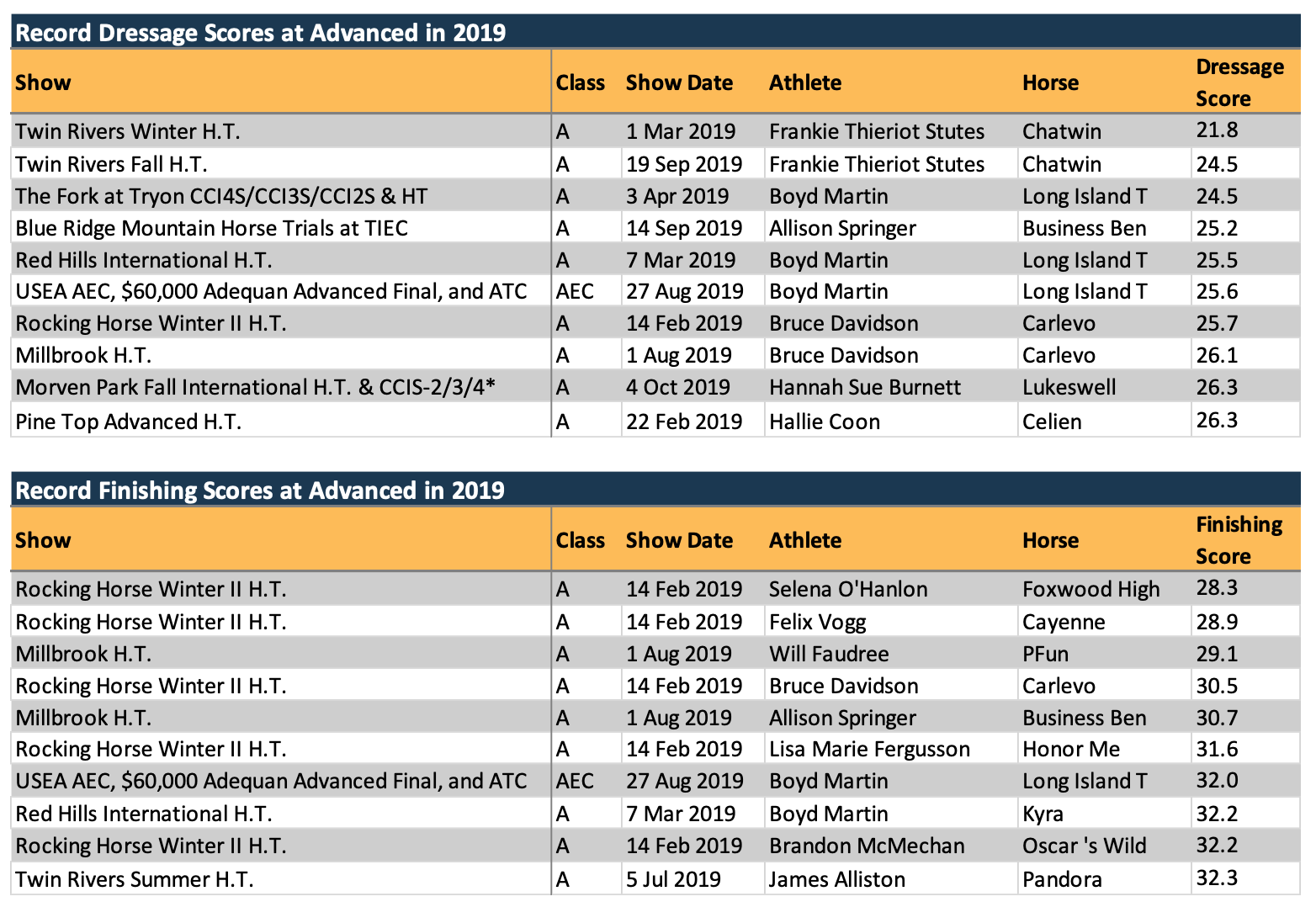
How Can You Use These Numbers?
Seeing how your fellow competitors are doing can provide clarity and help you set realistic targets. Of course, long-term goal-setting is not about comparison; you have to stay in your lane or risk being robbed of fulfillment. But these numbers can help you figure out where you stand. And if you do want to be more competitive, now you know what it takes. Maybe we will see your name in the record books soon.

